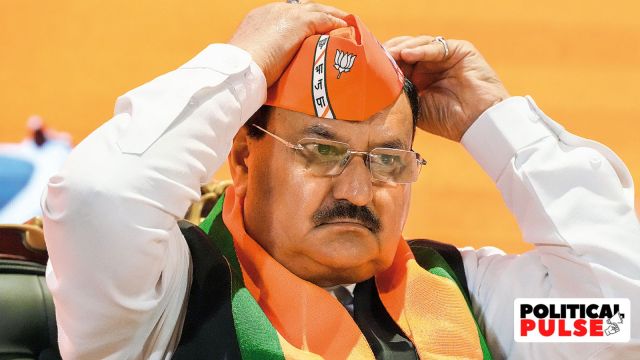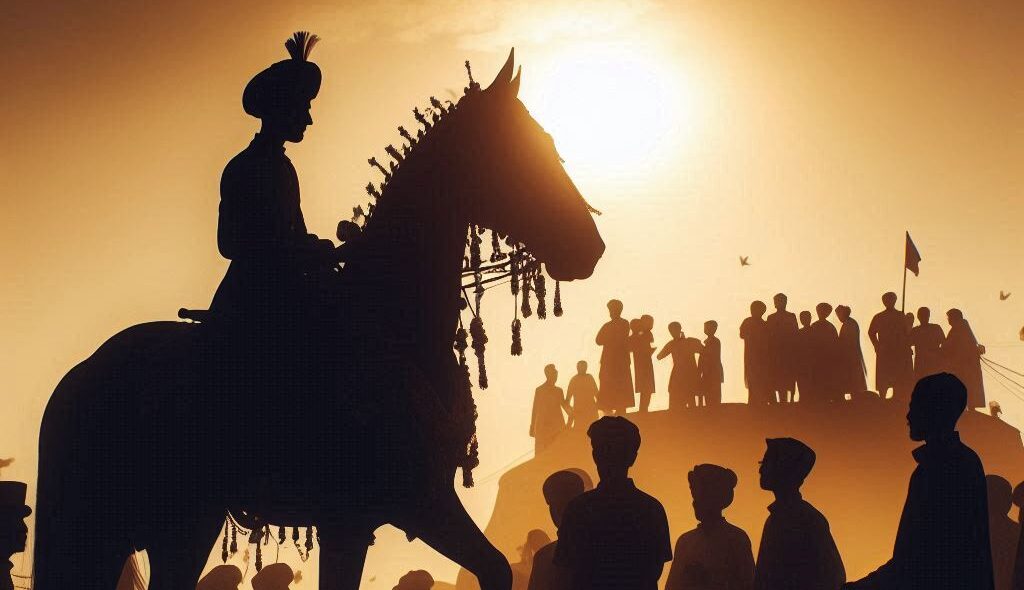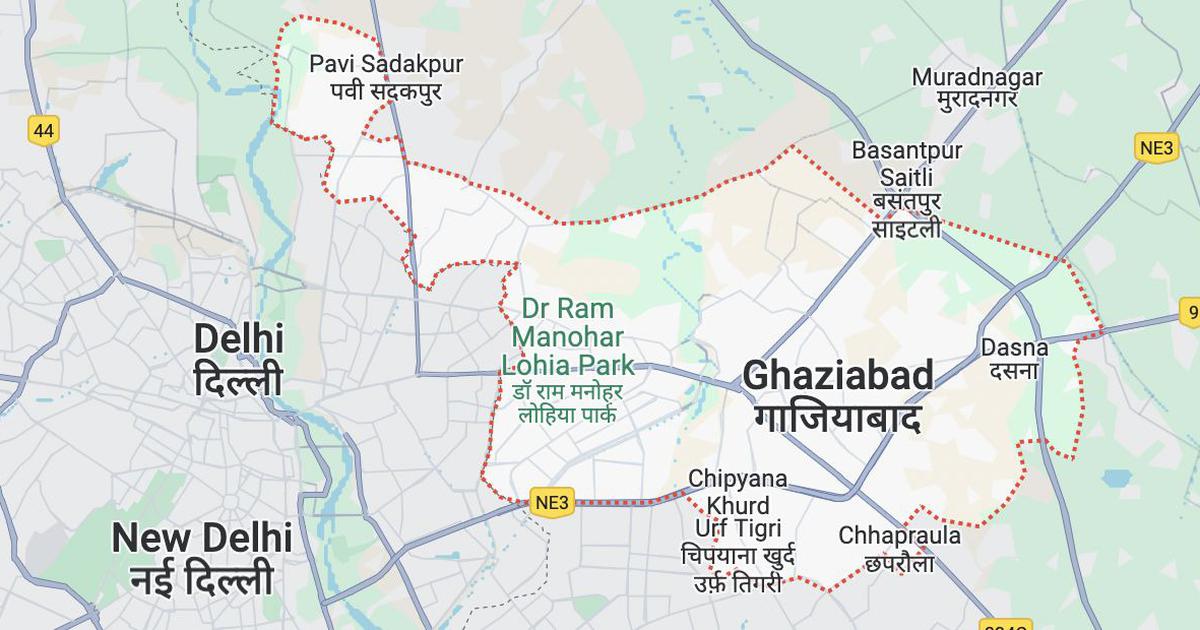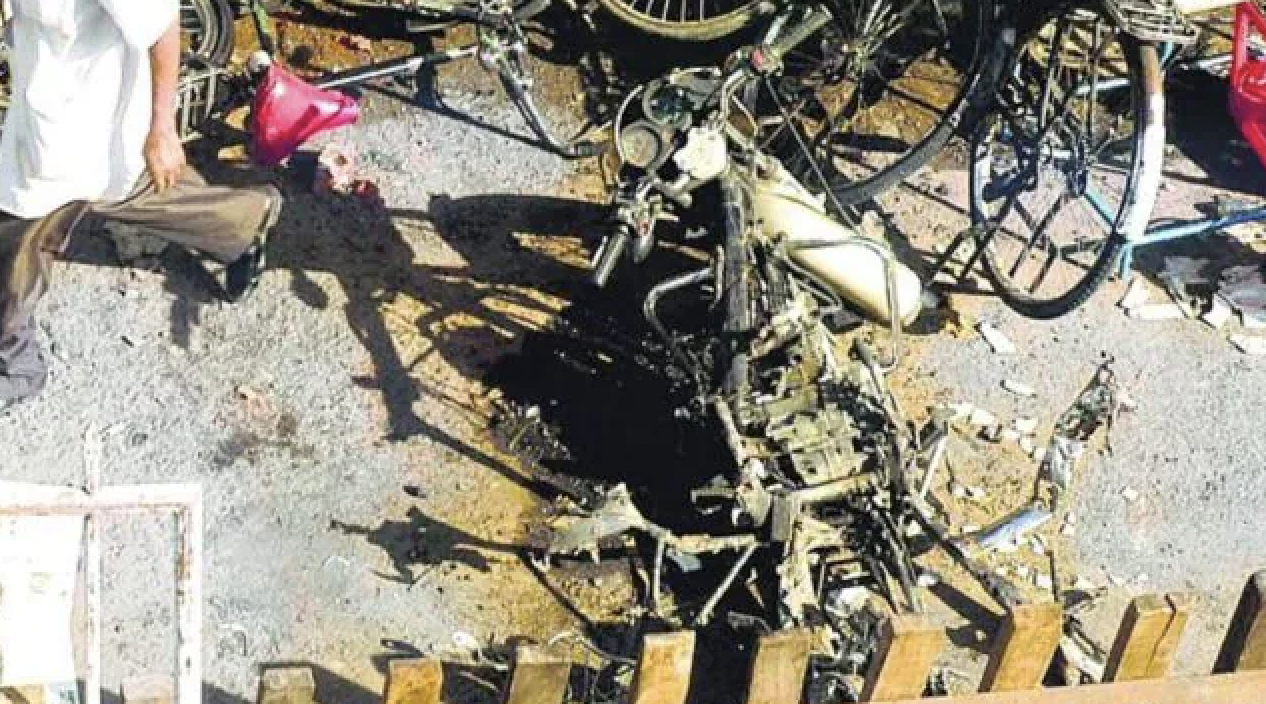
By Prajwal Bhat
On the evening of December 4, two prisoners walked out of the Madikeri district prison in Kodagu district of Karnataka after spending two weeks in jail for harassing two Muslim girls in public. A small crowd had gathered outside the prison to meet them. The men released from prison were bundled into a waiting vehicle like trophies and driven to Shanivarsanthe, a small town in the northern part of Kodagu. They were draped in saffron shawls and BJP leader SN Raghu posed for photographs with the beaming men.
“The youth were involved in the work of religion and this nation will bless them and help them prosper,” Raghu gushed in support of the two men released from prison. A week earlier Raghu visited the families of the men and assured them, “We will get your son back home. He has done this for the nation…He has done this for his religion. You don’t have to spend anything, we will take care of it.”
The two men Prajwal and Kaushik were sent to jail on charges of assaulting two minor school-going Muslim girls at a photocopy shop at Shanivarsanthe on November 18. They were part of a mob of 30 men angry with the girls for handing over their burqa to a classmate, a Christian girl.
The incident was the latest in a series of communal hate crimes reported in Kodagu over a month. The support garnered by the men charged with assaulting school-going children has alarmed residents in the hilly district. But for those involved in Hindutva groups in Kodagu, this appears to be what they have been building toward for years.
Hindutva groups galvanise in Kodagu
Hindutva groups have traditionally had sympathisers among the dominant and land-owning castes of Kodagu. But, it wasn’t until 2015 that the network of Hindutva groups galvanised against the then Congress government’s celebration of Tipu’s birth anniversary. “I remember being at the first Tipu Jayanthi protest and there were only a handful of us at the protest. Since then, support for our cause has grown in Kodagu,” says Vinay from the Bajrang Dal in Madikeri.
The opposition to Tipu Sultan in Kodagu is rooted in Hindutva narratives where he is portrayed as a religious bigot who massacred Kodavas in 1785.
A Vishwa Hindu Parishad (VHP) member was killed after stone pelting during the Tipu Jayanthi protests in 2015 resulting in an outpouring of sympathy for the agitation. Over the next few years, the number of Hindutva supporters protesting against the celebration of Tipu Jayanthi in Kodagu increased until the BJP came back to power in 2019 and put an end to the state-backed celebration of Tipu’s legacy.
That year, there were 20 units of the Bajrang Dal in Kodagu but in the last two years, this number has grown to 48, according to Vinay. One of the towns where new units were established was in Shanivarsanthe in Somwarpet taluk. This town located in the north of Kodagu, is closer to Hassan and Sakleshpur than it is to Madikeri, the headquarters of the district. It has a history of communal incidents dating back to the 1990s.
“People were jailed for a case in which they were accused of hoisting a Pakistan flag atop a mosque in Somwarpet all the way back in 1992,” recalls Rafi, a journalist from Somwarpet. The incident laid down a premise for what was to come in the next two decades.
Rafi says that there were subtle changes in the demographics of the town. “To explain this, you can now see that many Muslim-owned hotels in Somwarpet changed ownership and were sold to Hindus mostly from Kerala partly due to the communal disturbances in this region. In one area of our town, there was Friends Canteen, Maidu Canteen, Azeez Canteen, Paris Hotel, Rangoon Hotel and Sagar Hotel. These were all owned by Muslims but now they have all changed ownership or closed down,” he adds.
In the same period, Hindutva groups slowly worked to establish themselves in Somwarpet. The work throughout the year for the men in these groups includes preparing for festivals, annual conventions and social work, especially when the victims are Hindus. “In the last year, we have become more vigilant about the transport and sale of cows, the increase in conversions to Christianity and in highlighting and stopping people in interfaith relationships,” says Vinay, of the Bajrang Dal.
The series of communal hate-crimes in Somwarpet started on October 17 when pro-Hindutva groups disrupted a Christian prayer meeting. At the residence of Manjunath, a person who had earlier converted to Christianity, Hindutva groups along with a police officer disrupted a prayer meeting and accused Manjunath of converting Hindus, particularly poor people from lower castes, to Christianity. The complaint in this case states that Manjunath was converting people from Scheduled Tribes in his village.
A case was filed against Manjunath even as he, and the others present, denied the charge. He was arrested along with his family on charges of hurting religious sentiments. “The case was filed even though similar prayer meetings were being conducted by Pastor Manjunath for the last seven years,” says Freddy PT, a local resident who was present at the spot.
This was at a time when several Christian prayer halls were attacked by Hindutva groups in Karnataka to put pressure on the Karnataka government to introduce a stringent anti-conversion law in the state and prevent Scheduled Caste persons who convert to Christianity from availing reservation benefits.
Protests were held over this incident by Hindutva groups claiming that large-scale conversions were taking place in Kodagu. But, a counter-protest against this vigilantism by Muslim and Christian groups planned on the day of Eid Milad was not given permission by the police.
Three weeks later on November 7, there was another incident that drew a lot of attention. Zakir Pasha, an affluent timber dealer from Shanivarsanthe, was accused of assaulting four men from the Dalit community in a road-rage incident. Two of the victims, Nandan and Sandesh, are named in the police complaint. Their families declined to speak about the incident.
Zakir and his family members were booked by the police and charged with assault and attempt to murder. Zakir was eventually arrested on November 12. In response to this arrest, women from Zakir Pasha’s family protested in front of the Shanivarsanthe police station on the same evening.
SN Raghu and his close aide, a journalist named Harish from Shanivarsanthe, shared a video from the protest of the women shouting ‘Ambedkar Zindabad’ and falsely circulated a claim that they were shouting ‘Pakistan Zindabad’. They called for a bandh in Shanivarsanthe, based on this false claim.
The police looked through the videos from the protest including the ones shared by SN Raghu and concluded that there was no mention of ‘Pakistan Zindabad’ in the videos. “We went through all the video footage collected for three hours that night but there was no mention of ‘Pakistan Zindabad’. The women were chanting ‘Ambedkar Zindabad’. It happened right outside our station so many from the police had also videographed the protest,” says Lokesh, a police official from the Shanivarsanthe police station.
The police, in fact, booked a case against SN Raghu and Harish, for making false claims under section 153 (provocation with intent to cause riot) of the IPC. The duo however did not serve jail time as it was a bailable offence.
They were then free to go about their plan of enforcing a bandh in Shanivarsanthe. Led by SN Raghu, Hindutva groups Bajrang Dal and Hindu Jagarana Vedike (HJV) combined forces to force shop owners in the town to keep their shutters closed. On the day of the bandh, the groups defied prohibitory orders issued by the police to stage a protest. The police briefly detained them before allowing them to carry out a rally through the town. SN Raghu was joined by Robin Devaiah, BJP district president in Kodagu during the protest on this day. “The BJP does not leave Hindutva. We are with the cause of Hindutva and we were there on the day of the bandh,” says Robin Devaiah.
Three days after the enforced bandh in Shanivarsanthe, the school-going Muslim girls were attacked in Shanivarsanthe. Though the Shanivarsanthe police was diligent in booking cases against both Hindu and Muslim leaders, they did not always follow it up with arrests. “We wanted to maintain communal harmony in our area. This was a rivalry between SN Raghu and Zakir Pasha’s family and SN Raghu was adamant that the Scheduled Castes and the Scheduled Tribes (Prevention of Atrocities) Act should have been included in the charges against Zakir Pasha’s family. Even though we filed a case against SN Raghu, Hindutva groups went ahead with the bandh in Shanivarsanthe,” a police officer told TNM.
The Kodagu SP Kshama Mishra declined to comment about the series of events in the district. “We have registered cases against all of the accused persons,” she told TNM.
Local residents have questioned the police’s handling of these cases. Riyaz Pasha, the father of the Muslim girl assaulted in public, says, “The main person who threatened my daughter — Madan — is still free. They planned this in advance, followed her with cameras to the bus stop and harassed her. She was told that she is doing ‘Love Jihad’ and other things that she cannot even comprehend at her age but no one came forward to help her. This shows that even the public is scared of them (Hindutva groups)”.
“The police allowed Hindutva groups to hold a rally even though prohibitory orders were in place. This rally was led by SN Raghu, who was accused in the ‘Pakistan Zindabad’ video morphing case,” another local journalist Haneef MM says. “Even the peace meeting called by the police was a platform for SN Raghu to talk about communal harmony,” Haneef adds.
Some in Somwarpet conclude that SN Raghu might actually win over people with his actions in recent weeks. “It is dangerous since it can encourage young people to carry out more mob attacks and people are silent when Muslims are attacked. But for Raghu, his prospects in the BJP will improve by doing this,” says Shashidhar VP, a Congress spokesperson in Kodagu.
This story first appeared on thenewsminute.com






